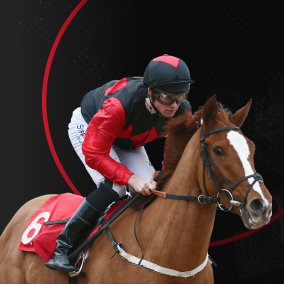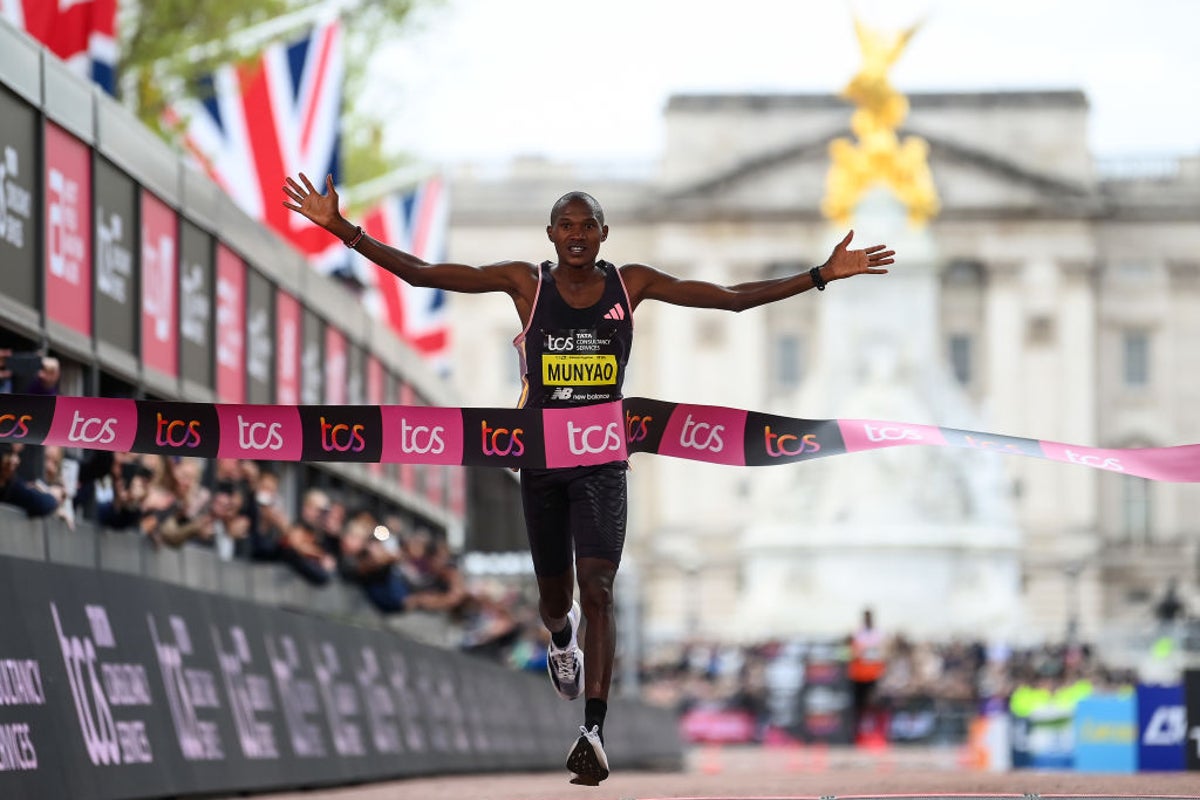It was an astonishing end to perhaps the most enthralling 1500m final in Olympic history. The build-up had been dominated by Jakob Ingebrigtsen and Josh Kerr’s bitter rivalry, yet all the focus was misjudged because now there is a new king.
Cole Hocker sneaked up on the inside in lane one just as Kerr had breezed past the Norwegian favourite. The American snatched gold, beating his personal best by three seconds, in a sizzling Games record of 3min 27.65sec. And it was all down to an injection of raw speed: 39.6 seconds for the final 300m.
Indeed, this was a race for the ages and you did not know where to look with daring candidates throughout a stacked field now littered with four new national records and three more personal bests.
Kerr, who would settle for silver, upgrading his bronze from Tokyo, beat out American Yared Nuguse by one-hundredth of a second. He had promised a vicious battle on the lilac track of the Stade de France, and so it proved. So this was the shock of the Games. But which shock?
Hocker underlined his credentials weeks ago at the US trials by upsetting Nuguse. But an even greater surprise came just six-tenths of a second later: Ingebrigtsen left off the podium altogether and down in fourth.
There was a grimace from Kerr as he crossed the line, too, but he ran the race of his life, timing his kick superbly with 200m to go and hitting the front in the final 100m. A new national record of 3mins 27.79secs, ending Mo Farah’s long-standing best, yet this was a cruel twist with less than 20m remaining.
“I’m so proud of myself, the best 1500m race I’ve ever done, it’s difficult to control what anybody else does,” Kerr said. “I controlled myself. It wasn’t enough over the last 20 to 30 metres, I got beaten by the better man on the day.
“I was so excited for today, I focused on the best execution I could. If you worry about the result, you’re starting to run a fine line and risk being disappointed. I wanted gold, I got silver, it’s better than bronze.”
It was billed as one of the most bitter rivalries in sport, one built from the bristling nature of Kerr, which has clashed with the supreme confidence, verging on arrogance, of Ingebrigtsen. He had bragged in the build-up about how he could “beat Kerr in a race blindfolded”.
Ingebrigtsen has proven to be almost impenetrable recently in championship 5,000m races with a deadly kick, and his second event starts on Wednesday. But his first love has always been the 1500m. It is why the losses to Kerr, and Jake Wightman a year previously in Eugene, Oregon, sting so much. His title in Tokyo in 2021 feels like a lifetime ago given the disruptive nature of Kerr.
Ingebrigtesen has been a pioneer for middle-distance running. The most famous advocate of double-threshold training which has revolutionised the sport in recent years. The method was championed by his father Gjert, who endured an acrimonious split in the family last year. Ingebrigtsen and his brothers, Filip and Henrik, had alleged violence from their father. The 58-year-old vehemently rejects those claims but was charged by Norwegian police with physical abuse in April. And the fallout added an extra layer to an already compelling final, with Ingebrigtsen’s compatriot Narve Nordas, the bronze medallist in Budapest, now trained by Gjert and finishing seventh here in Paris.
Sport craves rivalries, yet this heavyweight duel has now flourished into a three-way rivalry with Hocker’s blazing close now a threat even off an Olympic-record pace. Kerr, a fine talker, has been a gift to an event dripping in history and tradition from the past battles of Seb Coe, Steve Ovett and Steve Cram to Hicham El Guerrouj and Bernard Lagat’s thrilling duel in Athens. But Kerr had refused to blink in the build-up, despite being hounded by Norwegian journalists at every turn. He vowed to make this final “vicious,” promising a “war” would develop. But can this be considered a great rivalry if neither of the two protagonists won?
Kerr got out fast, yet he didn’t need to initiate the hellish pace he had promised. Instead, Ingebrigtsen led almost immediately, breaking 55 seconds after 400m. Kerr’s job was simple from here: follow.
He did so diligently until 600m remaining, with Ingebrigtsen seizing the moment and catching his rivals asleep to open up a gap. But Kerr reacted, closing in on Timothy Cheruiyut in second. And he was within striking distance at the bell.
The Scot’s waspish nature must have left memories of Budapest flooding back for the defending Olympic champion. An inevitable change in positions saw the Team GB star poised for glory. But the rivals shuffled down the home straight, affording Hocker his moment. Ingebrigtsen nudged Kerr into lane in a bid to protest gold, but in doing so probably cost himself a medal entirely by gifting Hocker the path to victory. It meant Kerr won the battle but ultimately lost the war.
Source: independent.co.uk



